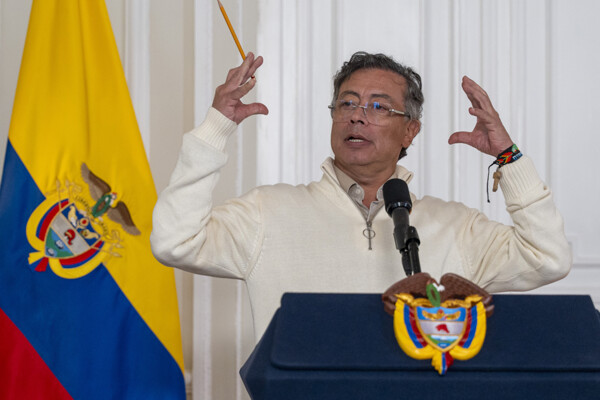The Colombian government has announced the creation of a dialogue table with miners and farmers who have been protesting for three days in four departments of the country. These demonstrators are demanding the expansion of the agricultural frontier in the moors and the legalization of more than 33,000 small and medium-sized operators in the sector.
The Minister of Environment and Sustainable Development of Colombia, Susana Muhamad, reported that a delegation of more than 20 officials is ready to address the protesters' demands. The areas affected by the farmers' and miners' strike are Antioquia, Norte de Santander, Santander, and Boyacá.
Muhamad expressed the government's willingness to find solutions that prioritize sustainability and the well-being of the affected communities. The installation of dialogue tables with traditional miners from Bajo Cauca is expected, where the aim is to formalize mining activity and combat the illicit economies that harm the Cauca River.
The minister recalled the negative impacts of using dredges and mercury pollution in the river ecosystem, emphasizing the need to balance the formalization of traditional mining with the protection of natural resources. She highlighted that the Colombian Constitution establishes the ecological and social function of land and property, and agreements must guarantee both labor rights and environmental preservation.
Meanwhile, residents of the moors in several departments have blocked major roads in the country in protest. The Federation of Farmers from the Colombian Northeastern Moors called for the demonstration against the delimitation of the moors, the agricultural frontier, temporary reserve areas, and the Moor Law, which would impact agricultural production and the local and national economy.
The protesters, using trucks, sticks, stones, and tires, blocked roads allowing only the passage of vehicles for emergency purposes and medication supply. Organizations and authorities have warned about the negative impact of the blockades on the economy and fuel supply in several municipalities.
The government has received calls from sectors such as land-based cargo transport in Antioquia to address the situation and prevent further damage to the economy and well-being of the population. Meanwhile, the Boyacá government reported gasoline shortages in several municipalities as a result of the blockades on the roads.














